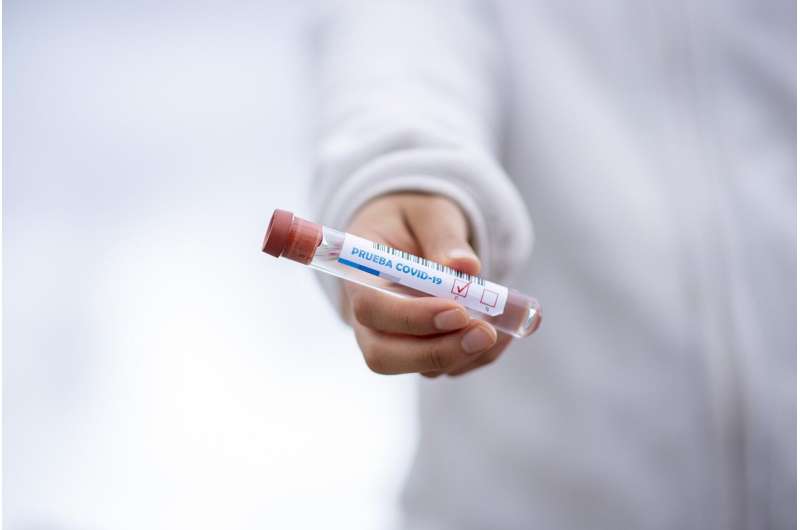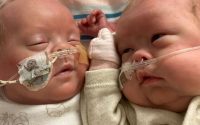Americans less worried about dying from COVID-19 as support for vaccine mandate grows

In a new ongoing panel survey by Northwestern University and The Ohio State University, researchers find Americans significantly less concerned they could die of COVID-19, while their overall perceived likelihood of contracting the virus remained relatively consistent from December through February.
“Public Attitudes about COVID-19 Vaccination,” a study of 1,200 Americans surveyed monthly from December 2020 through June 2021, tracks changes in attitudes around risk perceptions, decision making, policy preferences and preventative health behaviors. Respondents were asked about mask and vaccine mandates, restrictions on bars and restaurants and places of worship, willingness or hesitancy to get vaccinated, vaccine availability and effectiveness, as well as their most important sources of information on COVID-19.
The study is a collaboration between the Center for Communication & Public Policy in Northwestern’s School of Communication, where the full report is available, and The Ohio State University School of Communication. It is funded by a RAPID COVID-19 grant from the National Science Foundation.
“In December, Americans believed that they had almost a one in three chance of dying if they contracted COVID-19,” said Erik Nisbet, the Owen L. Coon Professor of Communication & Policy Analysis and director of the Center for Communication & Public Policy at Northwestern. “Now, two months later, that number has dropped significantly to an approximately one in four chance of dying if they got sick. Interestingly, the overall perception of the likelihood of contracting COVID-19 has not changed significantly.”
Mask and vaccine mandates
Despite some states lifting statewide mask mandates (Iowa, North Dakota, Mississippi and Montana), the public’s strong support (61%) for mask mandates remains unchanged from December.
“Since December, support for a vaccine mandate has risen from 31% in December to 35% in February,” said Graham Dixon, assistant professor of communication at the Ohio State University. “Though in comparison to mask mandates and closures, a vaccine mandate remains highly unpopular overall.”
Closing bars and restaurants and places of worship
In December, similar numbers of Americans were strongly supportive of closing restaurants/bars and places of worship. However, since that time, a gap has emerged where significantly fewer Americans are strongly supportive of keeping bars and restaurants closed while support for closing houses of worship remains unchanged. This is also noteworthy in light of recent Supreme Court decisions that direct states and localities to treat houses of worship the same as businesses when mandating closures.
Vaccine availability
Americans also appear to be increasingly worried about vaccine availability. Since the first wave of the survey in December—which was prior to the rollout and around the time that the COVID-19 vaccines were receiving FDA emergency authorization —researchers have seen a sharp increase in the number of people concerned about being able to get the vaccine.
Initially, the researchers found approximately one in three Americans expected it would be easy to get the vaccine.
“Since December, reality has set in with the slow pace of the rollout and limited supply, where now two months later, among the same set of Americans, the number who feel that way is closer to one in seven,” Nisbet said. “What is worrisome and needs to be monitored is whether frustration over getting the COVID-19 vaccine discourages some segments of the population from getting it.”
Vaccine accepting or hesitant
The study shows that approximately four in 10 Americans are “vaccine accepting,” saying they are extremely likely or likely to get a COVID-19 vaccine. Another one in four are “vaccine hesitant,” reporting that they are either somewhat likely or somewhat unlikely to get vaccinated. Approximately one in three Americans remain “vaccine resistant,” replying they are unlikely or extremely unlikely to get it. Over a three-month period, these percentages have remained steady and largely unchanged.
As other studies have found, race and gender were among the differentiating factors between those who are vaccine accepting from those who are vaccine hesitant.
Respondents who expressed hesitancy, as compared to acceptance, were more likely to be female, Black and/or religious, and they indicated they were less interested in news. They are also less trusting of healthcare providers and public health experts, less likely to get an annual flu shot and perceive the COVID-19 vaccines as less safe and somewhat less effective.
Most important source of information
Most Americans say they rely most on highly credible sources for COVID- information.
According to 23 percent of respondents, the most important source of information on the COVID-19 pandemic is news media, including newspapers, TV news, radio, news websites, followed by federal health authorities, such as those representing the CDC and FDA at 18 percent. Health care providers and scientists were both chosen as the most important source by 11 percent. Few respondents named social media or state and local officials as a primary source of COVID information.
The researchers said these interim study results provide some insights for COVID-19 vaccination communication campaigns as vaccination programs move beyond health care workers and the most vulnerable populations. The messaging should be calibrated to the audience.
Source: Read Full Article


